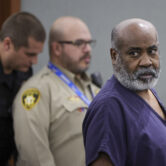WASHINGTON (CN) — Sudan owes more than $10 billion for sponsoring the simultaneous 1998 U.S. Embassy bombings by al-Qaida that killed 200 people in Kenya and Tanzania, the Supreme Court ruled Monday, refusing to eliminate punitive damages.
Though it’s been 12 years since Congress opened state sponsors of terrorism up to the possibility of punitive damages, the case here resolves whether the change to the Foreign Sovereign Immunities Act has retroactivity.
“How much clearer-than-clear should we require Congress to be when authorizing the retroactive use of punitive damages?” Justice Neil Gorsuch wrote for the court, which was mostly unanimous.
“Sudan doesn’t even try to say, except to assure us it knows a super-clear statement when it sees it, and can’t seem to find one here,” the 12-page ruling continues. “That sounds much less like an administrable rule of law than an appeal to the eye of the beholder.”
On behalf of survivors of the 1998 bombings and relatives of the 224 who died, the U.S. District Court in Washington entered judgments of more than $10 billion against Sudan between March and October 2014. The judge found that without Sudan’s “critical financial, military and intelligence services,” al-Qaida could not have carried out the 1998 bombings that injured at least 4,000.
Three years later, however, the D.C. Circuit found it unclear whether Congress meant to make the 2008 changes in law apply retroactively. It reduced the award by some $4.3 billion in punitive damages.
At oral arguments this past February, Justice Brett Kavanaugh did not participate because he had sat on the D.C. Circuit when it considered rehearing the case before the full appellate court. Sudan urged the Supreme Court to create a new rule requiring Congress to provide a “super-clear statement” when it wishes to authorize the use of punitive damages.
“We decline this invitation,” Gorsuch wrote. “It’s true that punitive damages aren’t merely a form a compensation but a form of punishment, and we don’t doubt that applying new punishments to completed conduct can raise serious constitutional questions.”
In a statement Monday, Gibson Dunn attorney Matthew McGill said that the 1998 bombings devastated his clients, victims of the attacks and their families.
“It’s hard to imagine an act more deserving of punitive damages, and we are deeply gratified that the Supreme Court has validated our clients’ right to receive this measure of compensation,” McGill said in a statement. “We are hopeful that this soon will lead Sudan to reach a just and equitable resolution with its victims.”
At oral arguments, McGill had argued that the waiver Congress carved out of the 2008 FSIA amendments for Iraq showed that it intended the law to apply retroactively.
Gorsuch said Monday that Sudan should have challenged the law’s constitutionality, rather than refuse to hand over damages.
Representing Sudan, White Case attorney Christopher Curran said Monday that his client “expresses sympathy for the victims of the acts of terrorism at issue, but reaffirms that it was not involved in any wrongdoing in connection with those acts."
Monday's ruling is sure to implicate other cases that have sprung from the Justice Against Sponsors of Terrorism Act, said Jerry Goldman, an attorney for victims of the 9/11 terrorist attacks.
“I believe that it reflects the longstanding congressional intent, reaffirmed in enactment of JASTA in 2016, that a nation state which kills and injures individuals in violation of fundamental international law should not just be obligated to pay compensation to those harmed, but needs to pay punitive damages, in order to deter them, and others, from doing similar acts in the future,” Goldman said in a statement.
Subscribe to Closing Arguments
Sign up for new weekly newsletter Closing Arguments to get the latest about ongoing trials, major litigation and hot cases and rulings in courthouses around the U.S. and the world.









